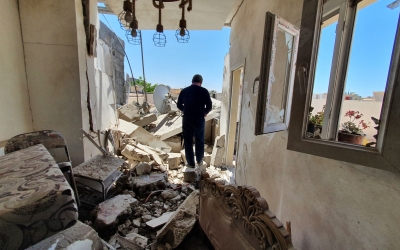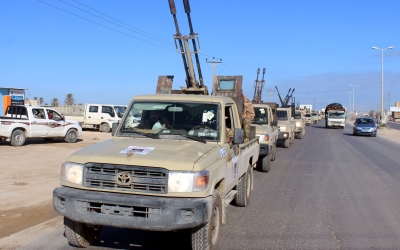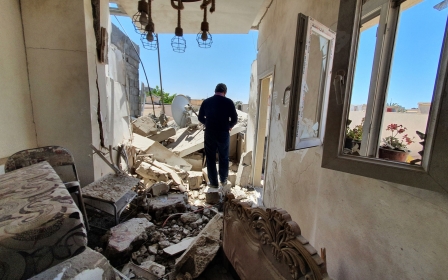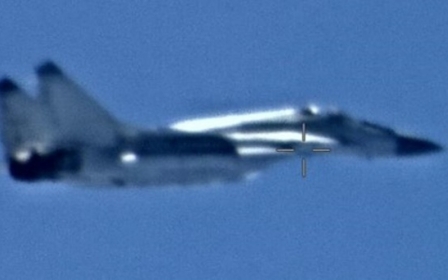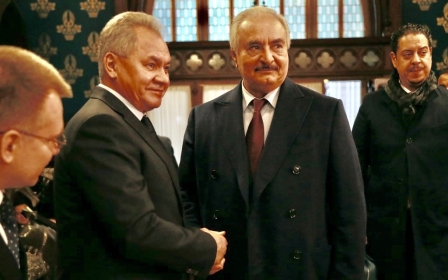Libya's GNA says it has regained control of capital Tripoli
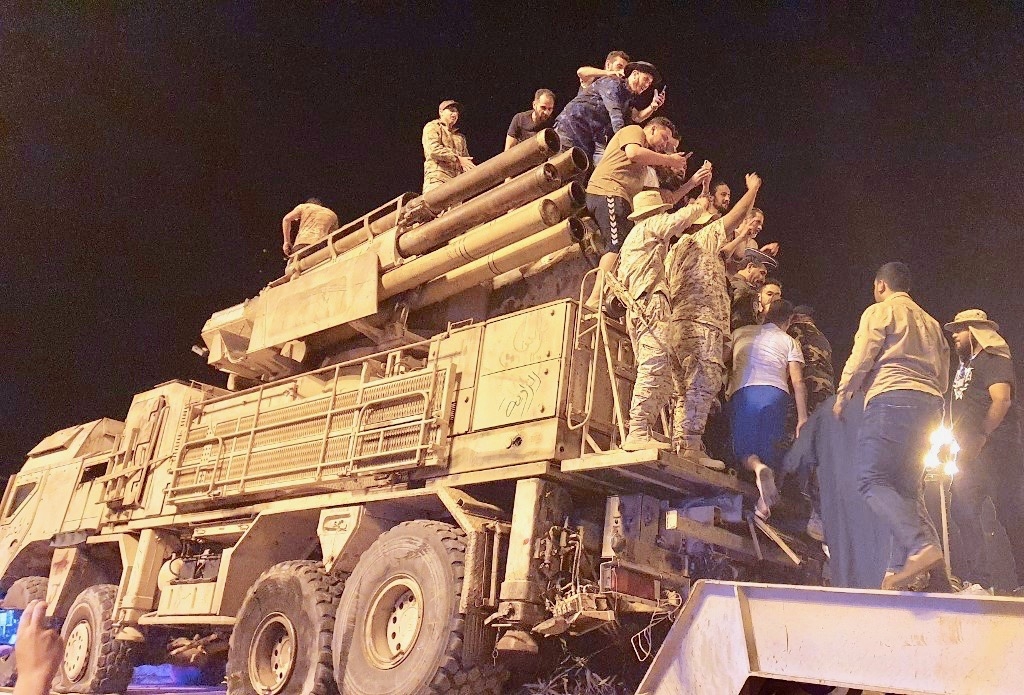
Forces fighting for Libya's internationally recognised government say they have regained control of Tripoli, as a military source with the opposing forces of Field Marshall Khalifa Haftar confirmed on Thursday that they were withdrawing.
The Government of National Accord's (GNA) military operations room said in a statement that it now has control over all borders of the Tripoli city administrative area.
Separately, a military source in Haftar's eastern-based Libyan National Army (LNA) said it would complete its withdrawal on Thursday from the Tripoli districts of Ain Zara, Abu Salim and Qasr Ben Gashir towards a town near its stronghold of Tarhouna.
On Wednesday, the GNA had announced it had recaptured Tripoli's main airport.
Fayez al-Sarraj, the leader of the GNA, met Turkish President Recep Tayyip Erdogan in Ankara on Thursday as the allies seek to secure their recent gains ahead of a new round of talks on a potential ceasefire.
"We will deepen our cooperation in the Eastern Mediterranean. We have decided to extend our exploration and drilling cooperation for energy resources within Libyan territory and in the sea," Erdogan said following the meeting.
"We will broaden the areas of cooperation inside Libya as well," he added, without elaborating.
Turkey began providing military support to the GNA in November after signing a military cooperation pact alongside a maritime demarcation deal, which gives Ankara exploration rights in the Mediterranean. The deal is rejected by Greece and other nations.
In recent months, Turkish support in the conflict, including the use of drones, has pushed back Haftar's LNA, which is backed by the United Arab Emirates, Russia and Egypt and which had been attacking the GNA in Tripoli since April 2019.
Ceasefire talks
On Monday, the United Nations said both sides had agreed to resume ceasefire talks, warning that weapons and fighters flying into Libya in defiance of an arms embargo threatened a major new escalation.
A senior Turkish official said the airport seizure was critical ahead of potential peace talks, and that Turkey would reject any proposal to divide Libya between warring factions.
"Everyone wants to sit at the table without losing territory, but the territory you hold strengthens your positions at the table," the official said.
Sarraj's visit to Ankara comes after a flurry of diplomacy on Wednesday as leaders from both sides travelled abroad for meetings hosted by the foreign powers embroiled in the conflict.
Sarraj's deputy and foreign minister travelled to Moscow, while Haftar was in Egypt to meet defence officials.
Turkish influence
Ankara, which has sent equipment and military personnel to the help the GNA, has slammed Haftar's supporters for backing a "putschist" and says Sarraj's recent advantage is an opportunity for political talks.
Libya has been without central government authority since 2011, with towns and cities controlled by factions fighting for rival governments in the east and west since 2014.
Establishing a lasting presence in Libya would give Ankara another foothold in the eastern Mediterranean, where it has been at odds with neighbouring states over offshore hydrocarbon drilling. Greece and Cyprus called last year's maritime deal with Tripoli illegal, an accusation Ankara has denied.
It would also grant it a strategic position near Egypt, with which ties have been strained for years.
"The whole world recognises that Turkey changed the balance" on the ground, Turkish foreign minister Mevlut Cavusoglu said on Wednesday.
"We have interests here [and] in the Mediterranean."
Middle East Eye delivers independent and unrivalled coverage and analysis of the Middle East, North Africa and beyond. To learn more about republishing this content and the associated fees, please fill out this form. More about MEE can be found here.


